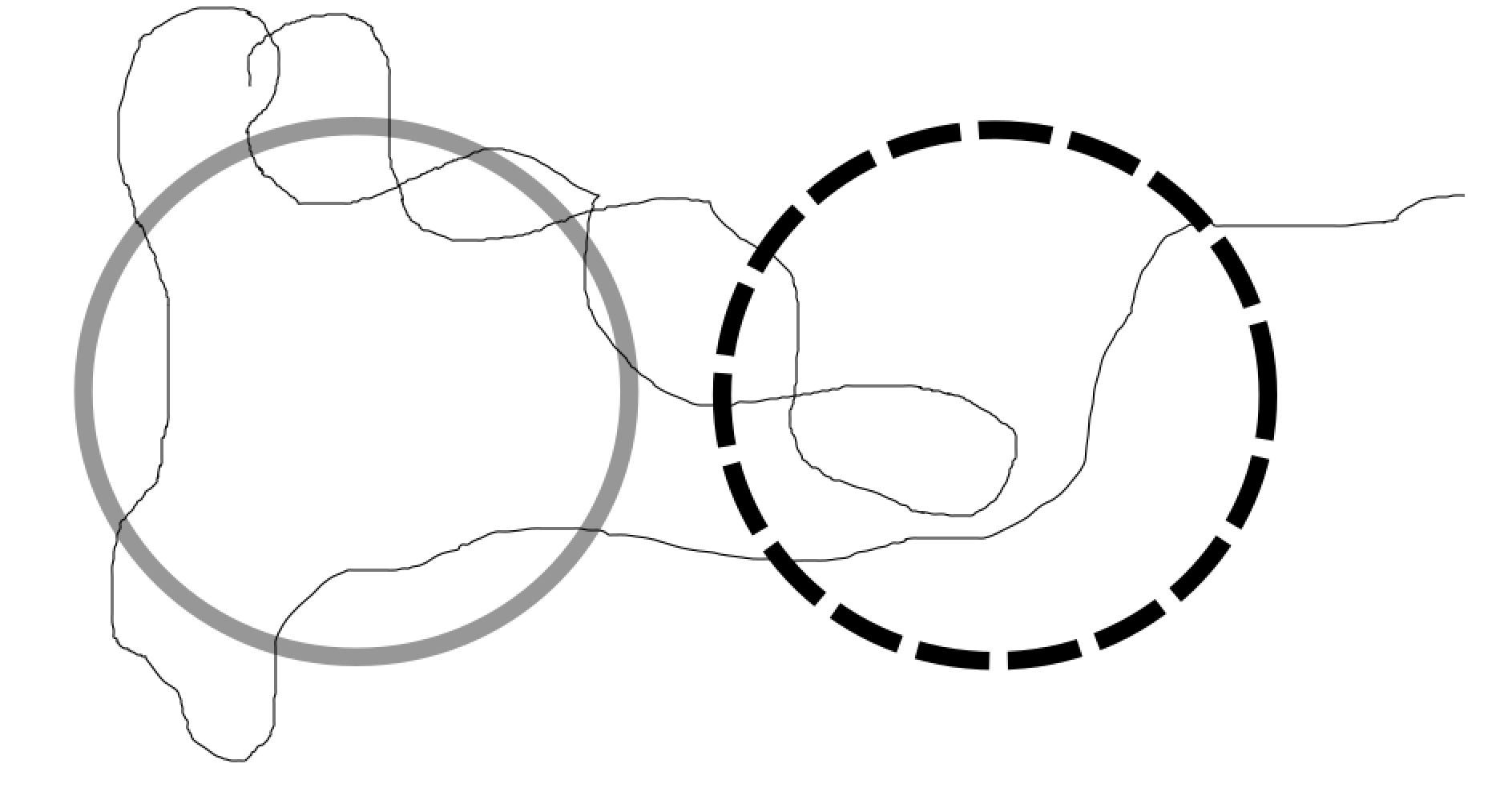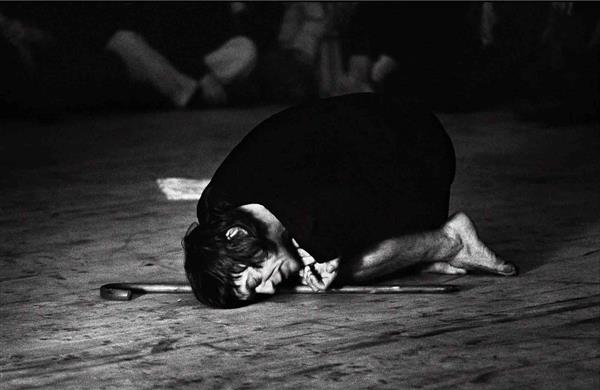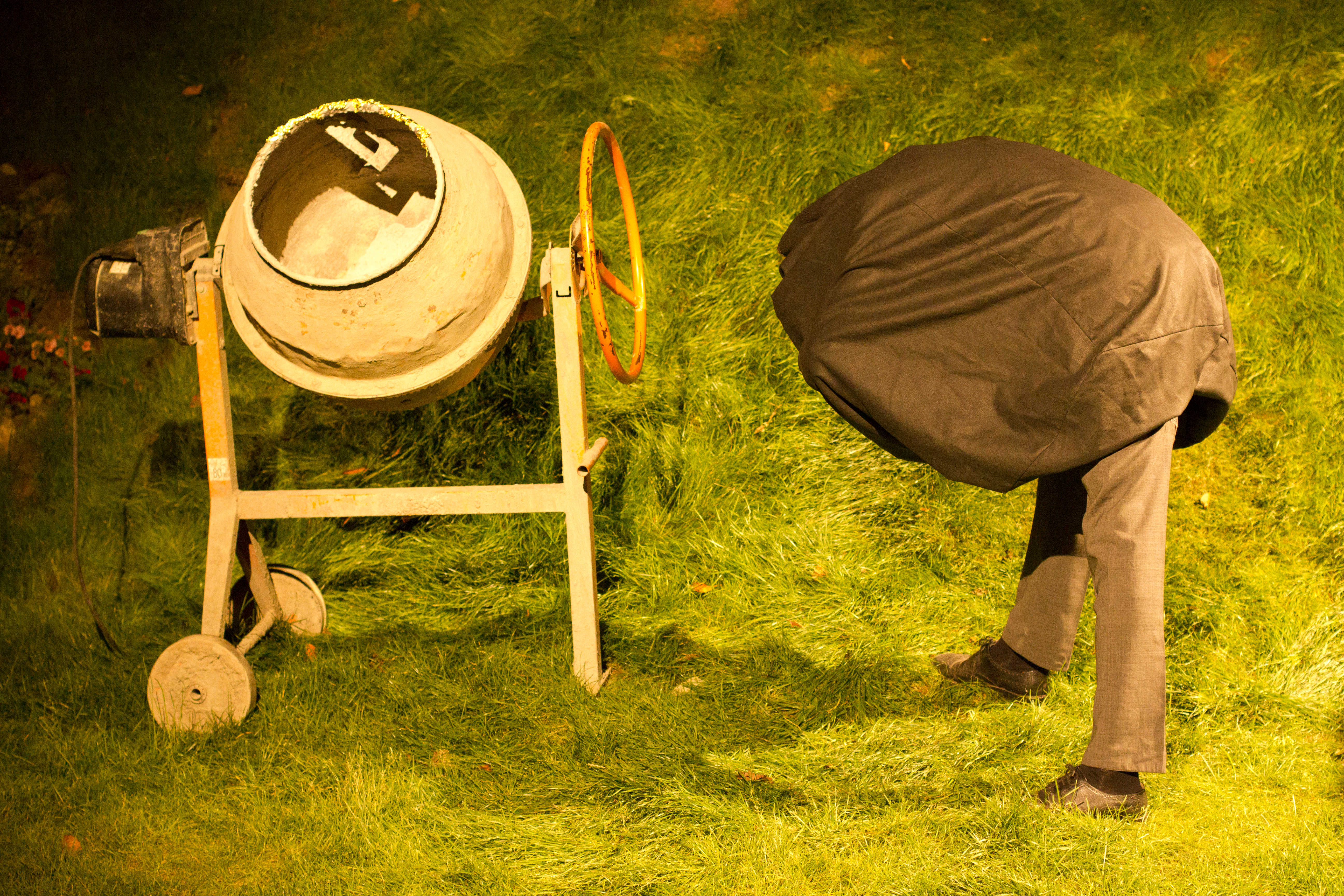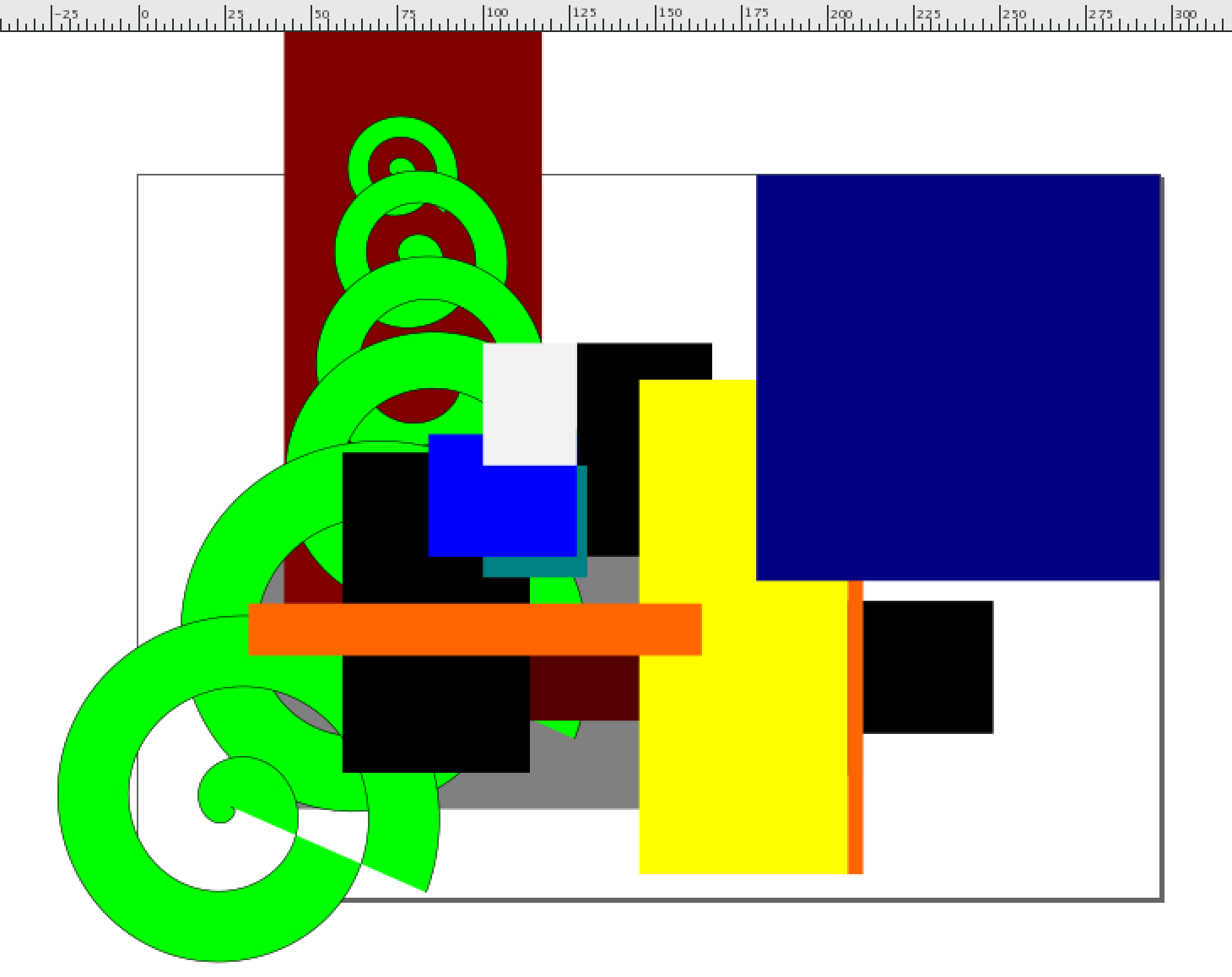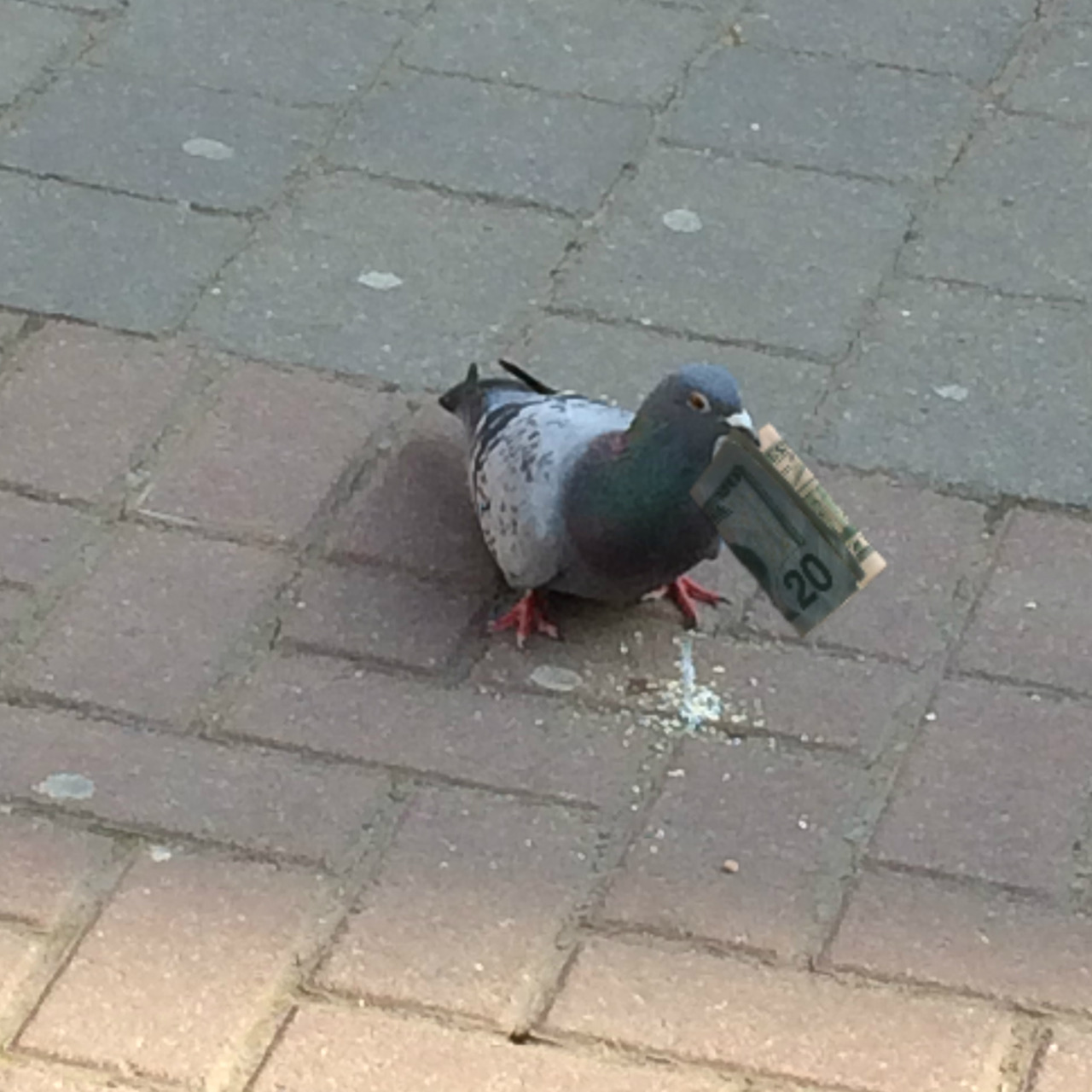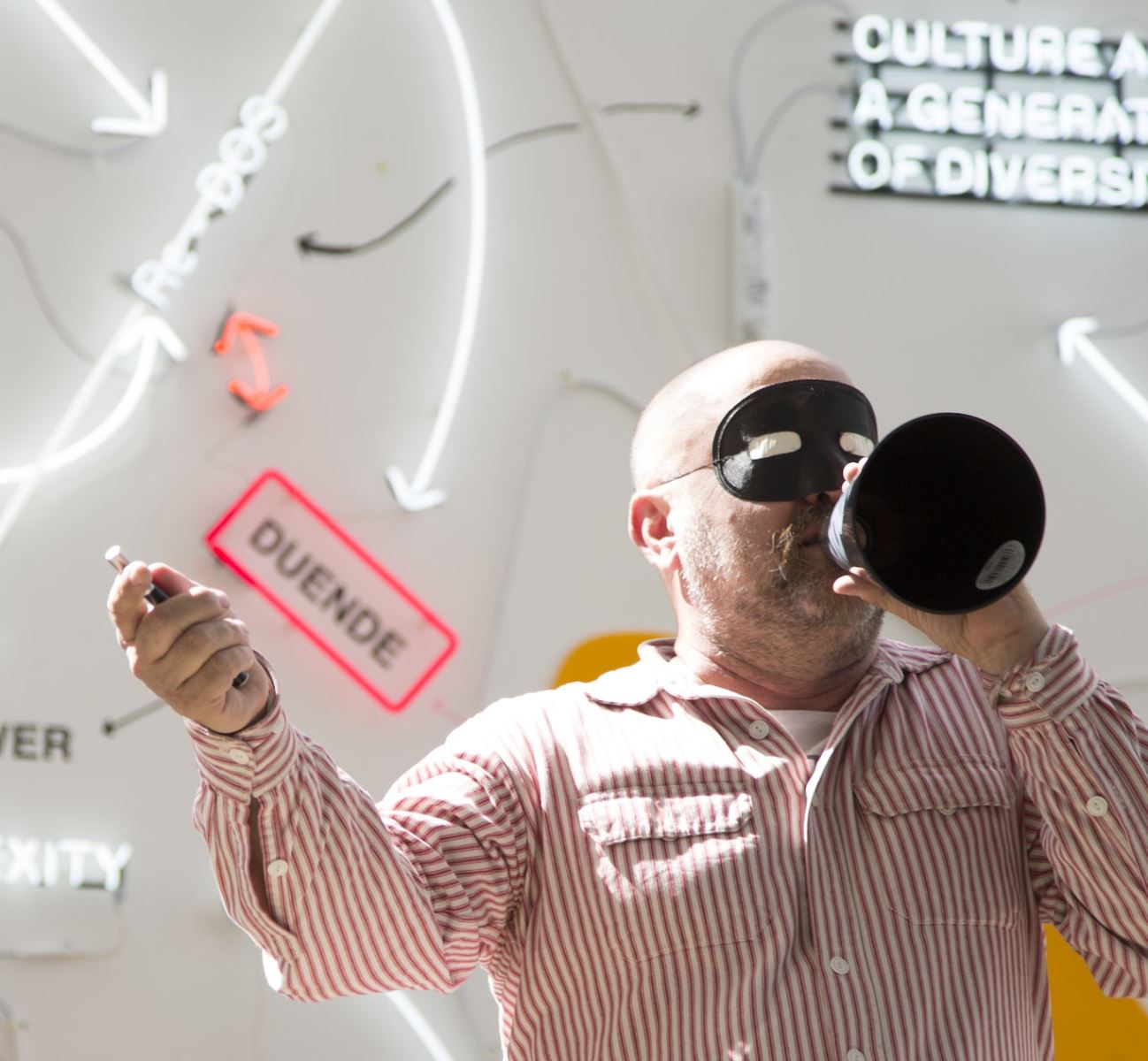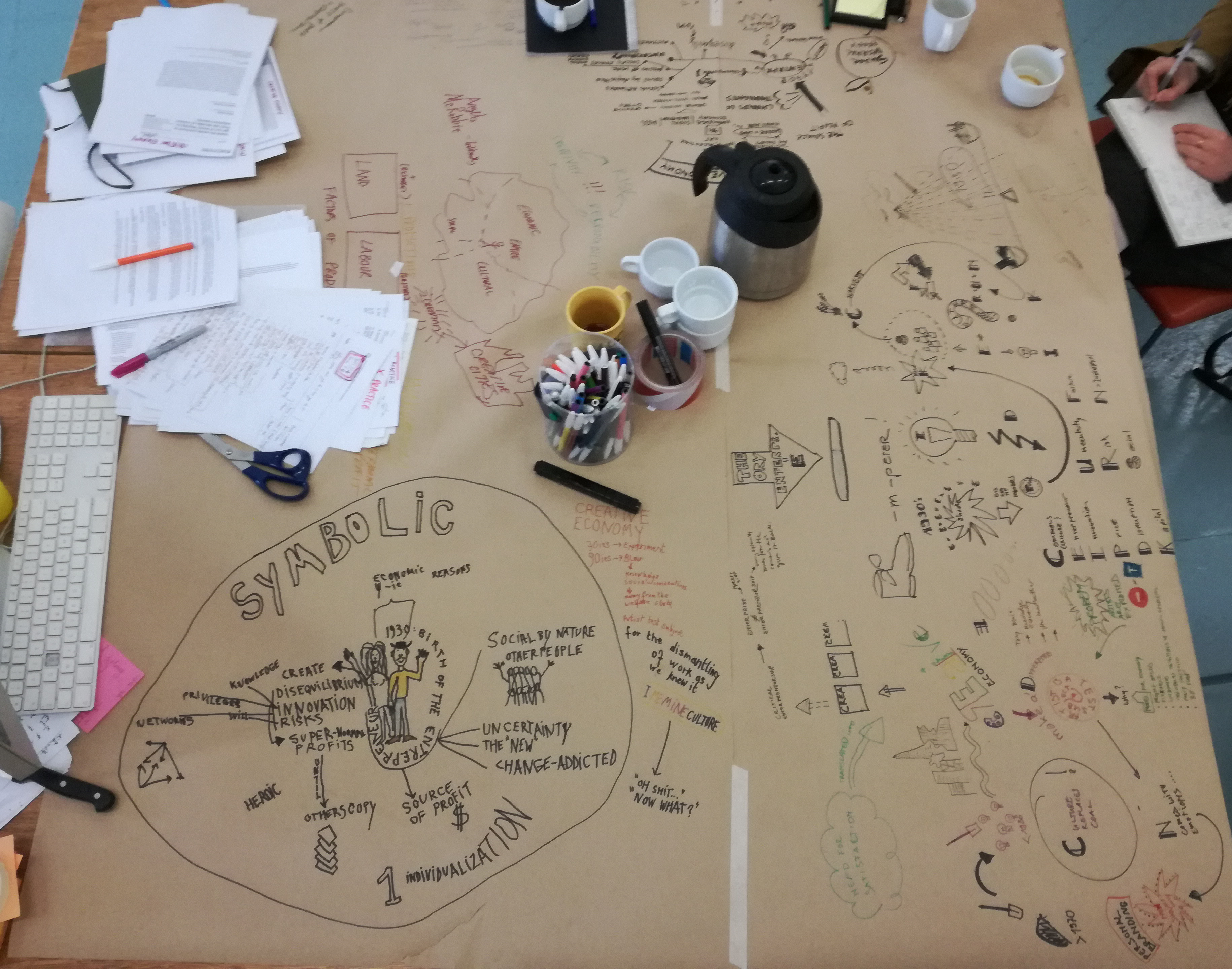postgraduate program, workshop
admin’s & enterpreneur’s reading list
1. Entrepreneur & Creative Economy
art and economy
Hans Abbing (2010). Why are artists poor? The exceptional economy of the arts. Amsterdam University Press. | |
Tatiana Bazzichelli (2013) Networked disruption. Aarhus: Digital Aesthetics Research Center, 73. | PhD thesis |
creative economy
Richard Florida (2002) The economic geography of talent. Annals of the Association of American geographers, 92(4), pp.743-755. | creative economy flag-raiser |
Richard Florida (2005) Cities and the creative class. Routledge. | |
Bridgstock Entrepreneurship Education in the Arts | quadruple bottom line theory, career self-management |
Hartley et al Key Concepts in Creative Industries | entrepreneurship and innovation |
creative economy critique
Banks, M. and O’Connor, J. (2017) Inside the whale (and how to get out of there): Moving on from two decades of creative industries research. European Journal of Cultural Studies, 20(6), pp.637-654. | Timely self-critique from apologetic creative economy former enthusiasts. Creative cities, cluster theory, Landry, Florida etc. |
Paul Chatterton (2000). Will the real Creative City please stand up?. City, 4(3), pp.390-397. [online] | |
Banks, M., 2010. Craft labour and creative industries. International journal of cultural policy, 16(3), pp.305-321. | Richard Sennett and craft. |
Anthony Davies (2007) Take me I’m yours: neoliberalising the cultural institution. In Mute Vol 2 No 5 It’s not easy being green [online] http://www.metamute.org/editorial/articles/take-me-im-yours-neoliberalising-cultural-institution | A principle contradiction: the content of the institution’s discourse can be utterly inverted in the institutional form. |
Jones, C. and Murtola, A.M. (2012) Entrepreneurship and expropriation. Organization, 19(5), pp.635-655. | Entrepreneurship as individual activity which rests on appropriation of production in common. |
Angela McRobbie 2016. Be creative: Making a living in the new culture industries. John Wiley & Sons. | Book. Forensic examination of the UK cultural economy. |
2. Diverse Economies
Performativity
..& research
Butler, J., 1993. Critically queer. GLQ: A journal of Lesbian and Gay Studies, 1(1), pp.17-32. | Performativity as a research strategy. Queer theory. |
Law, J. and Urry, J. (2004) Enacting the social. Economy and society, 33(3), pp.390-410. | |
Sedgwick, E.K., (1997) Paranoid reading and reparative reading, or, You’re so paranoid, you probably think this introduction is about you. [online] https://helda.helsinki.fi/bitstream/handle/10224/3628/2001-1233.pdf?sequence=1 |
.. & art
Brook, Donald. Experimental Art [online] | Art as ‘mimetic innovation’ |
Wright, S. (2013). 1:1 Scale, Toward a lexicon of usership. Van Abbemuseum. [online] | Art on a 1:1 scale |
.. & economy
Çalışkan, K. and Callon, M., 2009. Economization, part 1: shifting attention from the economy towards processes of economization. Economy and Society, 38(3), pp.369-398. | Performing the economy / economy as performance. |
Çalışkan, K. and Callon, M., 2009. Economization, part 1: shifting attention from the economy towards processes of economization. Economy and Society, 38(3), pp.369-398. | |
Callon, M., 2006. What does it mean to say that economics is performative? [online] https://halshs.archives-ouvertes.fr/halshs-00091596/document |
Diverse economies
JK Gibson-Graham and Ethan Miller (2015) ‘Economy as ecological livelihood’. Manifesto for Living in the Anthropocene, pp.7-16. | Rethinking economic action as a space for ethical negotiation. In economic geography, JK Gibson-Graham challenges the idea of “the economy” as a unified, capitalist domain, to instead reframe it as diverse practices and interrelationships of sustenance and livelihood. This “diverse economies” approach is grounded in methodologies from feminist theory, which emphasise the need to recognise, theorise and engage with diversity. It constructs a different vision of “economy” where a host of informal, underground, non-market, collective and co-operative behaviours and activities are considered not only prevalent, but also primary and consequential. |
JK Gibson-Graham. (2008) ‘Diverse economies: performative practices for other worlds’. Progress in Human Geography, 32(5), pp.613-632. | |
Gibson-Graham, J.K., 1999. Queer(y)ing Capitalism in and out of the Classroom [1]. Journal of Geography in Higher Education, 23(1), pp.80-85. | |
Zanoni, P., Contu, A., Healy, S. and Mir, R.,(2017) Post-capitalistic politics in the making: The imaginary and praxis of alternative economies. In Organization, Vol. 24(5) Sage Publications pp 575-588 | |
Gibson-Graham, J.K., 2014. Rethinking the economy with thick description and weak theory. Current Anthropology, 55(S9), pp.S147-S153. |
3. Radmin
Art and admin | |
Andrea Phillips (2015) Invest in What howtoworktogether.org [online] | Arts organisations’ structures shape their policies. A history of artistic work proposing radical forms of cooperation vs potlitcally endorsed models of entrepreneurship. |
Caroline Woolard (2017) Ourgoods, BAMBAPHD [online] | Art-based critique of art economies. Objects and contexts: together, objects and contexts create space for reflection, circulation, and social transformation. |
Angela McRobbie (2010) Rethinking Creative Economy as Radical Social Enterprise. Variant Magazine [online] | How does teaching students critical understanding tally with also encouraging self-reliance and entrepreneurship? Proposes a renewal of radical social enterprise and co-operatives as self-organised collectives, to provide working structures for diverse occupations, including artists. |
Business studies | |
Martin Parker Art as Work | Critical management studies perspective on Art. Being an artist is supposed to expose the constraints of rules by bending / breaking conventions .. but art is work and involves rules, and work is creative and produces difference. |
Matthew Manos (2012) Business as a Medium in Hertz, Garnet. Critical Making. 1st ed. [United States]: Telharmonium p.27-32. [online] | Business as a medium for critical enquiry and meaning-making, to change perceptions. A means of designing a future the entrepreneur would like to inhabit. Business as a non end-dated project; an ultra accessible medium; a platform for experiments. |
Martin Parker et al (2013) ‘Horizons of possibility’. In: Parker, M., Cheney, G., Fournier, V. and Land, C. eds., The Routledge companion to alternative organization. Routledge. | Assimilation and recuperation (Boltanski & Chiapello) vs operating in the cracks. Essential laboratories for post/non/modified capitalist practices, ‘less-governed’ (Foucault). Critique is a limited strategy if the real goal is social transformation. (A positive critique which brings new things into the world). Does the scale of resistance have to match the scale of the problem? Calls for a radical insurgent entrepreneurship as form of social creativity. Changes in daily practice, invents futures. Entrepreneurship as a set of unstable, untested, potentially transformational practices of collective invention and reorientation. |
Craig Deegan (2016) Twenty five years of social and environmental accounting research within Critical Perspectives of Accounting: Hits, misses and ways forward. Critical Perspectives on Accounting, 43, pp.65-87. | Critical accounting. The transformational potential of accounting, vs producing incontravertible facts. Accounting as a means of identifying which action one must defend. |
Systems thinking | |
Gregory Bateson (1972) Steps to an Ecology of Mind | Form is the primary mode of communication, understood analogically. Significant meta-level change requires a change of context as well as content. |
Bruno Latour (2011) What’s the story? Organizing as a mode of existence. In: Passoth, JH., Peuker, B. and Schillmeier, M., Agency without Actors. | Organisation staves off disorder. Being-in-action, organisations as scripts. Organisations as a flock of sparrows. |
Legal | |
Janelle Orsi Bronwen Morgan Morgan, B. and Kush, D. (2015) ‘Radical transactionalism: legal consciousness, diverse economies and the sharing economy’. Journal of Law and Society 556-587 Bronwen Mogan and Declan Kuch Radical Transactionalism | An expansive concept of enterprise as ‘any productive activity that might bring us sustenance’. The legal, financial and organisational structures of our current economy do not sit comfortable with small-scale sustainable economy initiatives. |


